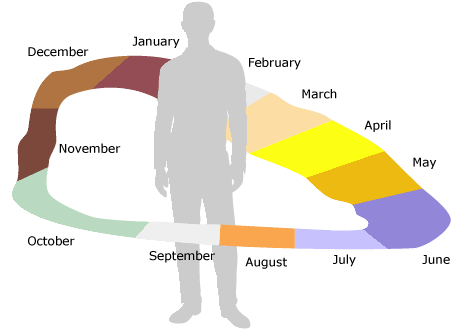Afterwords // Last Year in Quotes! (We’re Glad We Took Notes.)

January 5
Jason Witmarsh, Writers on Writing Lecture Series
“Occupy that critical part of your brain–the thing that says, ‘this is useless’–and give that part of your brain a crossword puzzle, while the other part writes.” (J.W. on: writing in form)
January 6
Rebecca Albiani on Blake’s Songs of Innocence and of Experience, The Frye
“William Blake couldn’t stand falsity in anyone . . . and so he was a difficult companion.”
March 11
Barbara Courtney, Tiny House Reading Series, hosted by Emily Johnson
“You will have to learn . . . how to dispense with teachers, even me.”
April 14
Troy Jollimore, Seattle Arts & Lectures
“Any really good poet has to be philosophical . . . if you pursue any field long enough you eventually end up doing philosophy.”
April 16
Andrew Feld, Open Books
“I don’t think there are that many people these days writing narrative-poems-in-heroic-couplets-that-are-visionary-quests. So, I sort of enjoy doing that.”
April 22
Gregory Laynor, Tiny House Reading Series
“I think I’m more of a worry doll than a poet . . .”
May 12
Melissa Dickey & Zach Savich, Open Books
“On the way here I passed a stained glass store and thought, oh, I should get some information about glass and write a whole book about it. But I’m always going to prefer having that moment of thinking I’m going to write a book about stained glass.” — Z.S.
“I was interested in what was invisible at that time, and now I’m not interested in that anymore. Maybe it’s because I’m a mother now and really grounded in the world of people.” — M.D., on a poem written several years ago
May 15
Michael and Matthew Dickman, Seattle Arts & Lectures
“I find it really important to advocate for older poets who were important to me along the way. For example, Diane Wakoski. I’m always wearing t-shirts that say ‘I Love Diane.'” — Matthew Dickman
August 18
A Reading of Oulipian Writing, Spine & Crown
“I inquired into the roots of the ‘Choose Your Own Adventure’ novels from the 1970s and couldn’t find an originator of the form. Then I realized that the form is as old as human thought. Isn’t it human to wonder what might have happened if you’d traveled a different route?” — Doug Nufer
September 27-30
Convergence on Poetics Conference, UW Bothell
“I’ve always been more interested in lineage than affiliation.” — Peter O’Leary
“I think of poetics as the conditions for the possibility of a poem.” –Barrett Watten
“Sounds are insubstantial and mean everything.” — Leonard Schwartz
October 7
Tiny House Reading Series, hosted by Emily Johnston
“Whenever I see a slug I cover it with a leaf…”— Jane Wong
October 18
Seattle Lit Crawl, City Arts Fest
“Nothing has hurt you as bad as an idea.” — Vanessa Vaselka
November 1
Plume Anthology of Poetry, 2012 Group Reading, Elliott Bay Books
“When life really gives you punches, it tends to steal your words, and you don’t know what to say back.” — Tess Gallagher (on writing about tragedy)
“It’s strange being walked over…” — Brian Culhane (of reading in Elliott Bay’s basement)
November 11
Poesciposium Reading, UW Friday Harbor Labs
“I have touched one or two beautiful faces in my time…” — Kevin Craft (from a poem about a Mark Rothko painting)
November 15
Maggie Nelson & Eileen Myles: Poets on Painters, Seattle Arts & Lectures
“In James Schuyler’s diaries he wrote about weather like it was art. I tried to begin a series of stories that started with Provincetown skies, but they never became stories…” — E.M. (on the origins of Skies, a book of poems)
“I never think about genre…I look for the shape things want to come in.” — M.N.
December 1
PageBoy Magazine Release Party, Kaleidoscope Vision
“Is PageBoy Magazine a solid, liquid, or gas?” — Thomas Walton
“Yes!” — audience
“Is an online journal a solid, liquid, or gas?” — T. W.
“No!” — audience
(excerpt from a “scientific proof” amassed by Editor Thomas Walton on the difference between print lit. and web lit.)
December 2
Afternoon Poetry II, Blindfold Gallery
“You will make me look as if I don’t love you even when I find your hairs in my books.” — Sarah Galvin
